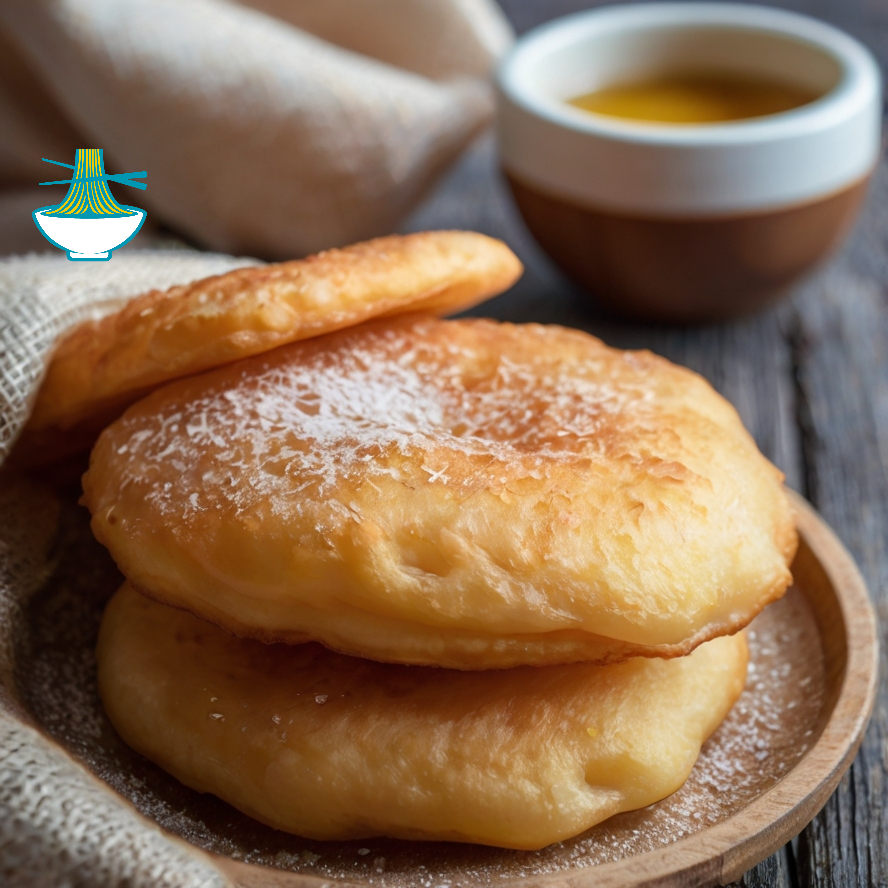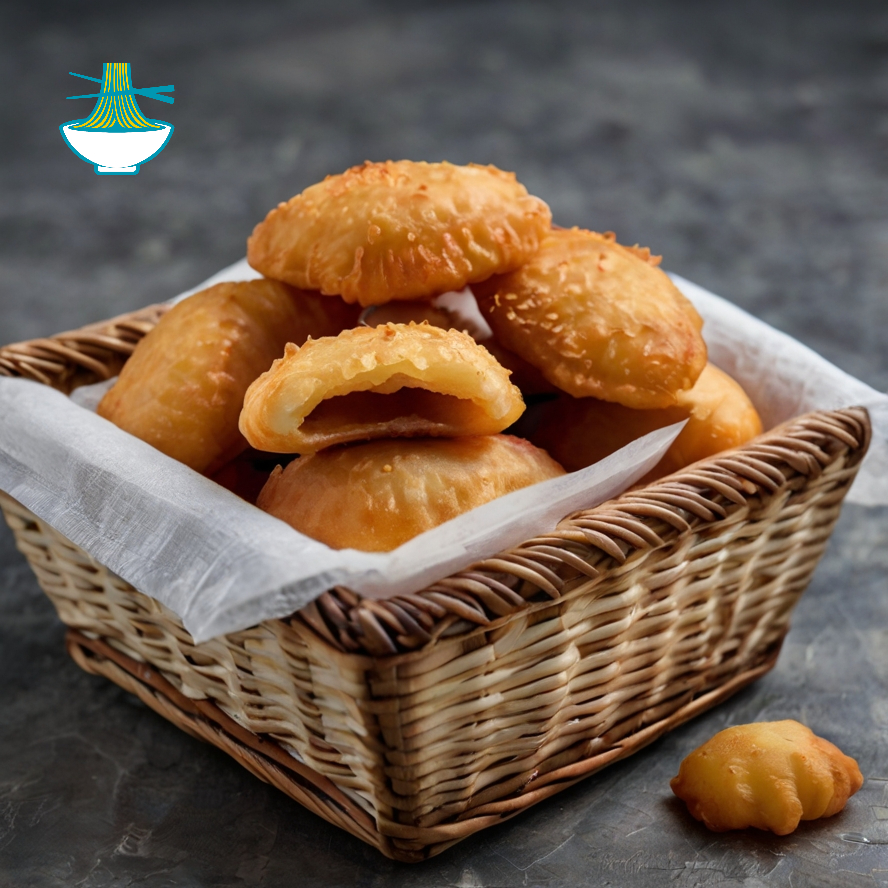Discover the perfect Kuimak recipe, a delectable fried dough treat ideal for breakfast or as a satisfying snack. Learn how to make this crispy, golden delight with our step-by-step guide. Enjoy Kuimak with your favorite toppings or fillings for a versatile and mouthwatering experience!
Ingredients:
- 2 cups all-purpose flour
- 2 tablespoons sugar
- 1 teaspoon salt
- 1 tablespoon baking powder
- 2 tablespoons unsalted butter, melted
- 1 cup milk
- 1 large egg
- Vegetable oil for frying
Instructions:
Mix Dry Ingredients: In a large bowl, whisk together the flour, sugar, salt, and baking powder.
Combine Wet Ingredients: In a separate bowl, whisk the egg and milk together. Stir in the melted butter.
Make the Dough: Gradually add the wet ingredients to the dry ingredients, mixing until a soft dough forms.
Shape the Kuimak: On a floured surface, roll out the dough to about 1/4-inch thickness. Cut into desired shapes (squares, circles, or triangles).
Heat Oil: Heat vegetable oil in a deep skillet or frying pan over medium heat.
Fry the Dough: Carefully place the dough pieces in the hot oil, frying in batches. Cook until golden brown and crispy, about 2-3 minutes per side. Remove with a slotted spoon and drain on paper towels.
Serve: Enjoy Kuimak warm, with your choice of toppings such as honey, jam, or powdered sugar.
Tips:
- Ensure the oil is hot enough before frying to achieve a crispy texture.
- Experiment with different shapes and sizes for variety.
Enjoy your homemade Kuimak as a delightful breakfast or a tasty snack anytime!
Nutritional Values:
All-Purpose Flour (2 cups):
- Calories: Approximately 910 kcal
- Carbohydrates: 191 grams
- Protein: 13 grams
- Fat: 2 grams
- Fiber: 6 grams
Benefits:
- Provides essential carbohydrates for energy.
- Contains some protein and fiber, although in smaller amounts compared to whole grain alternatives.
Sugar (2 tablespoons):
- Calories: Approximately 96 kcal
- Carbohydrates: 24 grams
- Protein: 0 grams
- Fat: 0 grams
- Fiber: 0 grams
Benefits:
- Adds sweetness to the recipe, enhancing flavor. However, it should be consumed in moderation as excessive intake can lead to health issues like obesity and diabetes.
Salt (1 teaspoon):
- Calories: 0 kcal
- Sodium: Approximately 2,300 mg
Benefits:
- Essential for maintaining fluid balance and nerve function. However, excessive sodium intake can contribute to high blood pressure.
Baking Powder (1 tablespoon):
- Calories: 6 kcal
- Carbohydrates: 1 gram
- Protein: 0 grams
- Fat: 0 grams
- Fiber: 0 grams
Benefits:
- Helps dough rise, creating a light and airy texture in baked goods.
Unsalted Butter (2 tablespoons):
- Calories: Approximately 204 kcal
- Fat: 23 grams (of which 14 grams are saturated fat)
- Carbohydrates: 0 grams
- Protein: 0 grams
Benefits:
- Adds flavor and richness to the dough. Butter also provides vitamin A and some other fat-soluble vitamins.
Milk (1 cup):
- Calories: Approximately 150 kcal
- Carbohydrates: 12 grams
- Protein: 8 grams
- Fat: 8 grams (of which 5 grams are saturated fat)
- Calcium: 300 mg
Benefits:
- Provides protein, calcium, and vitamin D, which are important for bone health.
Egg (1 large):
- Calories: Approximately 70 kcal
- Protein: 6 grams
- Fat: 5 grams (of which 1.5 grams are saturated fat)
- Carbohydrates: 1 gram
- Cholesterol: 186 mg
Benefits:
- Rich in protein and essential nutrients like vitamins B12 and D. Supports muscle repair and overall health.
Vegetable Oil (for frying):
- Calories: Varies based on amount used
- Fat: Varies based on amount used
Benefits:
- Provides a cooking medium and adds crispiness to the dough. Choosing oils with healthy fats (like olive oil) can be beneficial.


Comments